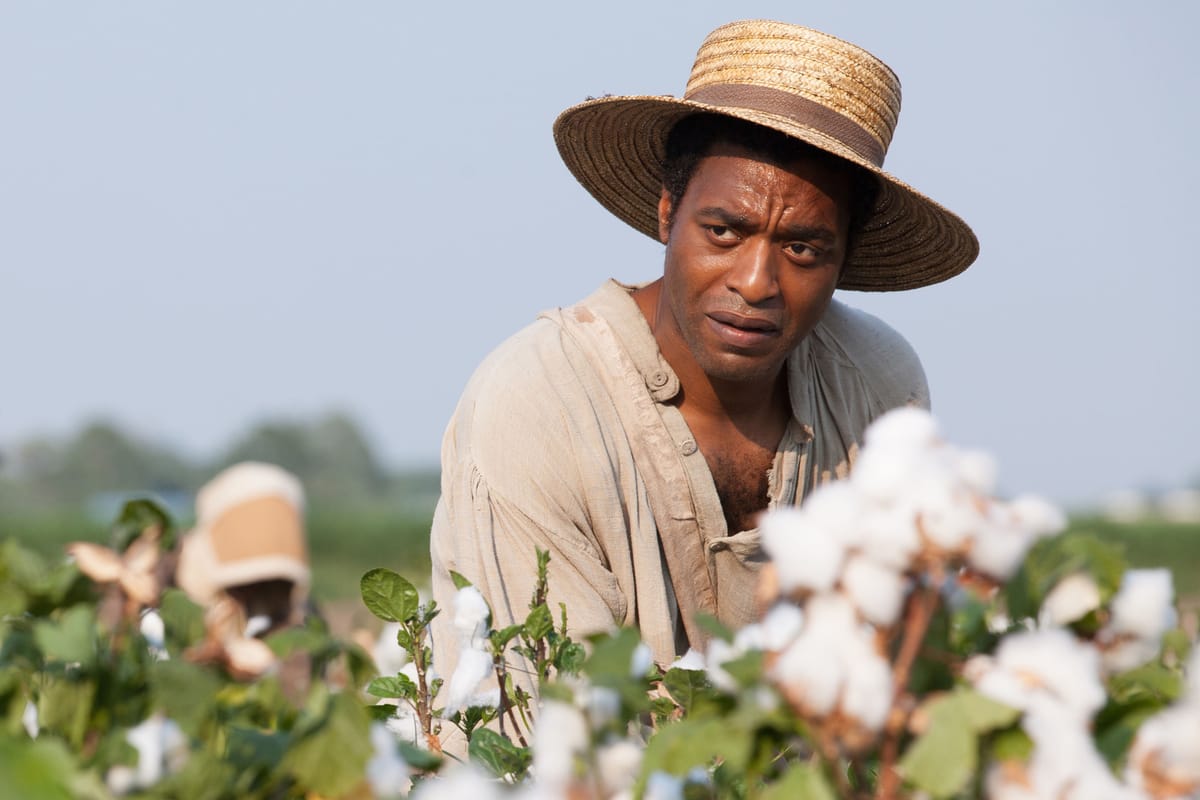12 Years A Slave

With the Oscars coming up soon, we take a look at all the Best Picture nominated movies, starting with ’12 Years A Slave’. Seen as an Oscar-favourite, the movie raises important questions about the legacy of slavery in contemporary America and provokes us head-on.
By Dorina Marlen Heller, BA Chinese and Social Anthropology

This is a powerful film. And it is an important film. Steve McQueen’s “12 Years a Slave”, based on the personal accounts of Solomon Northup, is currently swamped with Oscar nominations (nine so far, including Best Director and Best Actor) and reviews praising its greatness, its meaningfulness and timeliness. And yes, the story of the free-born Solomon Norhup (Chiwetel Ejiofor), who is taken advantage of, tortured, enslaved and treated like an animal, will stay with you. At least some aspects and images of his struggle will not be forgotten when the lights are on again. Like the image of him and the other slaves being stripped of their clothes and examined like animals by their white buyers. His back thick with scars. The heat in the cotton fields at noon when one slave drops dead to the ground and the corpse is beaten for not getting up again. And the lashing. Again and again. Eventually you seem to be carried away in the wide stream of blood, sweat and tears which frame the story and ensure its flow.
This is a cruel history lesson because it is so very real. Because McQueen wastes no time pampering his audience, he has a story to tell, the true story of Solomon Northup, a middle-class, black man with a good-paying job, a talented violinist and a happy family who one day gets kidnapped and sold into the South. And he tells his story with clear, strong images without romanticising and idealising anything. We find a wide range of human tragedies in this film, but what stands out is the biography of a man who does not want to “survive, but to live” and struggles to stay humane and true to himself amidst the horrors of antebellum South America of the mid-19th century. Some might criticise that this middle-class man’s fate does not resemble the fates of the thousands of others who were actually born into slavery, with no education, completely dependent on their masters and without any chance to escape their life. True. But this film is about raising awareness and making people understand history. And if this can be achieved by drawing on the outstanding, real story of a middle-class man, then why not. One way or the other, the film’s topic is – although extremely important – not much mediatized.
McQueen rarely uses Hollywood-clichés, relying rather on the impact of powerful, clear images, which carefully build up the film. This concept works. Ejiofor is brilliant in his role, almost forcing the audience to identify and sympathise with him. So is Michael Fassbender as the cruel and sadistic drunkard of a plantation owner. Or Lupita Nyong’o, whose fault lies in being too young and beautiful for a slave and therefore she involuntarily gets between the prurient plantation owner and his jealous wife (Sarah Paulson). Oscars will be won. Maybe legitimately, but I personally feel that despite all, this film lacks the depth of a great work of art. It is convincing and beautifully-done, but not one of those movies which have the potential to change your life. Or your view on things, or who you are. But go and watch it nevertheless. And see for yourself.
12 Years a Slave is one of nine movies nominated for Best Picture at the 86th Academy Awards and part of our Oscar Race reviews, brought to you in partnership with the Ritzy Picturehouse in Brixton. 12 Years a Slave plays at the Ritzy Picturehouse until the 19th of February.





